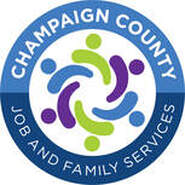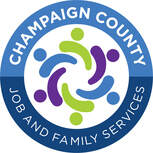|
Although Child Protective Services (CPS) do not become involved with families until after an allegation of abuse or neglect already exists, CPS agencies have long recognized the importance of prevention, early intervention, family support, and community engagement to break the cycle of abuse and neglect.
Family preservation programs focus on providing intensive support and services to families at risk of having their children removed from their care. These programs aim to strengthen families, address underlying issues contributing to abuse or neglect, and prevent unnecessary removals. They offer a range of services, such as counseling, parenting education, substance abuse treatment, and assistance with housing and employment. By addressing the root causes of family challenges, these programs aim to keep families intact and reduce the likelihood of future abuse or neglect. Differential Response (DR) models offer an alternative approach to CPS investigations by providing differentiated responses based on the level of risk and needs identified in a reported case. Rather than following a traditional investigative approach for all cases, DR models allow CPS workers to engage with families in a more collaborative and supportive manner when the risks are lower. This alternative response approach promotes early intervention and emphasizes the importance of providing services and support before situations escalate. By tailoring responses to the unique needs of each family, DR models aim to prevent future incidents and promote positive outcomes. Family Group Decision-Making (FGDM) involves engaging extended family members, close friends, and other significant individuals in the decision-making process for child welfare cases. CPS workers facilitate meetings where families and their support networks come together to develop plans and make decisions that prioritize the safety and well-being of children. This approach encourages family empowerment, collaboration, and shared responsibility. By involving the broader community in decision-making, FGDM aims to build stronger support networks and increase the likelihood of successful outcomes for children and families. Community-based prevention programs aim to address the underlying factors that contribute to child abuse and neglect at a systemic level. These programs often work in collaboration with community organizations, schools, healthcare providers, and other stakeholders to provide education, resources, and support to families. They may include home visitation programs, early childhood development initiatives, trauma-informed care training, and parenting support groups. By targeting the broader community, these programs strive to create a nurturing environment that promotes child well-being and prevents abuse and neglect before they occur. Recognizing the impact of trauma on children and families, CPS agencies are adopting trauma-informed approaches. This involves training CPS workers and other professionals to understand the effects of trauma, respond empathetically, and provide trauma-informed care. Trauma-informed approaches focus on creating safe and supportive environments, promoting healing and resilience, and addressing the underlying trauma that may contribute to abusive or neglectful behaviors. By addressing trauma at its root, CPS agencies aim to break the cycle of abuse and promote healthier outcomes for families.
1 Comment
Susan Evans
12/5/2023 02:14:30 pm
Love that Champaign County has utilized this best practice model for years … and thankful for the CPS leadership that continually promotes family unity and supports all options available to that family for success! Great team of professionals for Champaign County!
Reply
Leave a Reply. |
Archives
December 2023
Categories |
|
|
|
The information through this site may include inaccuracies or errors. The Champaign County DJFS website should not be relied upon for personal, legal or financial decisions. Consult the appropriate CCDJFS personnel for advice relevant to your situation.
|
Site powered by Berry Digital Solutions, LLC
Urbana, Ohio
Urbana, Ohio


 RSS Feed
RSS Feed

